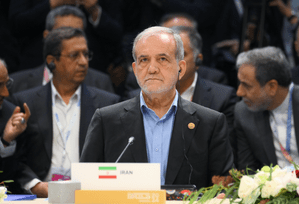
UN confirms reimposition of sanctions on Iran after JCPOA collapse
The United Nations has officially confirmed the reactivation of sanctions against Iran, marking a significant escalation following the collapse of the 2015 nuclear deal.
According to a note from the Office of the Spokesperson for the UN Secretary-General, the sanctions took effect on September 27 at 8 p.m. EDT. Under this decision, all provisions of earlier UN Security Council resolutions — including 1696 (2006), 1737 (2006), 1747 (2007), 1803 (2008), 1835 (2008), and 1929 (2010) — have been reinstated as they applied prior to the adoption of Resolution 2231 (2015), which endorsed the Joint Comprehensive Plan of Action (JCPOA).
The UN also confirmed that the Security Council Committee under Resolution 1737 has been re-established. Its sanctions list now includes 43 individuals and 78 entities, all of whom had previously been designated before the JCPOA was signed.
The move follows the decision by France, Britain, and Germany last month to formally trigger the JCPOA’s “snapback mechanism”, which allows for sanctions to be reimposed within 30 days if Iran is deemed to be in violation of the nuclear agreement.
On September 19, the UN Security Council failed to pass a resolution that would have extended sanctions relief for Iran. A subsequent proposal for a six-month extension to both the JCPOA and Resolution 2231 also failed to gain approval.
The reimposition comes amid heightened regional tensions. In June, Israel and the United States bombed several Iranian nuclear facilities and military bases, prompting Tehran to suspend international inspections of its nuclear program.
Iran’s President Masoud Pezeshkian reiterated last week that the country has “no intention of developing nuclear weapons”, despite Western concerns.
The sanctions are expected to intensify global pressure on Tehran while deepening divisions within the Security Council over the future of nuclear non-proliferation in the Middle East.